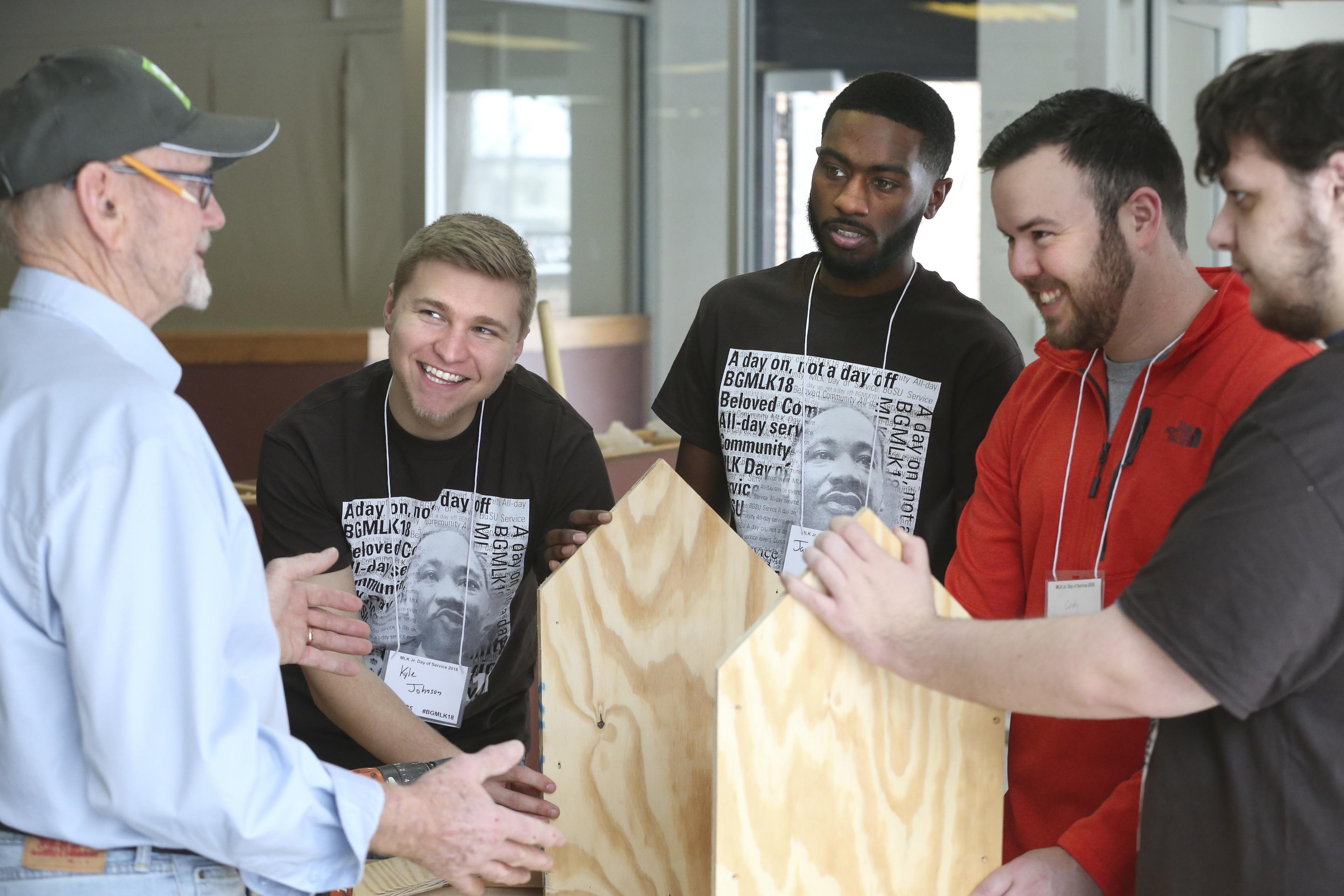

BGSU Leadership Center messaging expands to inclusion, COVID-19
Marvin Center moves to Diversity and Belonging Division to advance University's strategic goals
By Julie Carle
The C. Raymond Marvin Center for Student Leadership at Bowling Green State University has added two new objectives to its agenda.
The center, known for guiding, engaging and teaching students to achieve true leadership abilities, will now help the University deliver important messages around diversity and belonging, as well as help lead through COVID-19.
As the newest unit of the Diversity and Belonging Division, the center expands its role beyond preparing students to become servant leaders to helping shift the focus to how leaders can use their voices and their platforms to break down barriers, said Jennifer Q. McCary, chief diversity and belonging officer at the University.
With the recent release of the division’s Comprehensive Strategy and Plan, the University is looking to students, faculty and staff to help improve the campus culture, McCary said.
“With all that is going on in our nation, we saw this as a good opportunity to help students understand that as the future leaders of this world, we need them to be prepared to lead in a 21st century democracy,” she said.
The Marvin Center, led by Dr. Jacob Clemens, director, provides a solid foundation in leading this work, McCary said.
“The team and the students linked to this center are driven and connected to various spaces around campus and the community,” she said, making this a good move for the University’s goal to create a more inclusive environment.
“The emerging role of the Marvin Center is to have an enhanced focus on creating a sense of belonging on campus,” Clemens said.
Since 2010, the leadership center has worked with students and student organizations to understand and develop their own leadership styles.
In addition to focusing on diversity and belonging, BGSU President Rodney K. Rogers has tasked the Marvin Center to help prepare students for the new reality once the threat of COVID-19 is gone.
“There will come a time when we will become post-COVID and we will have to embrace a new normal,” Clemens said.
He compared the changes to those that occurred after 9/11.
“The division and the center will take a large role in the effort to equip students for this shift, and teach them how to evolve and grow to become leaders and contribute back to society in a post-COVID world."
Developing future leaders
"At the core of the Marvin Center’s programming is the social change model of leadership development," Clemens said. “We are here to help students create positive change in their community, in their organizations and in themselves.”
The center’s programs “build knowledge and utilize leadership theory," he said. They also work on skill building, such as demonstrating empathy as a leader. Another important aspect of leadership development is understanding values and how those are displayed in actions, words and decision-making.
“We use facilitations, simulations, case studies and interactive activities to help students grow as leaders," he said.
The center's programs include the Sidney A. Ribeau President's Leadership Academy, Falcon Leadership Institute, Student Leader Retreat and an annual one-day Leadership Academy in the fall, all geared at leadership development.
The Falcon Leadership Institute, which started as an honors project with five first-year students in 2014, has grown into a successful and expanding program with more than 180 students slated for the 2020-21 year. According to Clemens, the program’s success is quantified by the 95% retention rate, one of the highest of any campus program.
Another important initiative of the center are competency certificates.
“When the center was created, we established five leadership competencies: inclusion, global citizenship, group development, purpose and integrity,” he said. “To develop these competencies, we created workshop series that offer certificates in ethical leadership, inclusive leadership, global leadership and social justice leadership.”
The support of BGSU alumnus C. Raymond Marvin ’60, ’17 (Hon.) has been key to elevating the center’s purpose.
“Ray’s support of the Center for Student Leadership is a testament to his goodwill and sincere commitment to helping develop the next generation of social change leaders in the world,” Clemens said.
Expansive outreach
With the goal to “empower and support our people to achieve excellence,” McCary said. “We aren’t just talking about pockets of people; we mean each person.”
The center will play an important role in reaching out to all students through its expansive connections and programming.
“Any initiative, any movement throughout history in our country has been started with a small group of people who had an idea. That idea was spread through passion, dedication and action,” Clemens said. “I see the Marvin Center helping to foster that leadership in our students and supporting an inclusive community that cares about each other. We need to garner support, get buy-in and actually meet the students where they are at.
“Most students want this change but need a little help with focus and direction and support. Grassroots movements are always going to be the strongest, so we believe the messages of belonging and inclusion and leadership will spread through this way,”
Whether the messaging is about diversity and belonging or COVID-19, the Division of Diversity and Belonging, along with the Marvin Center, will be part of the movement to help spread the word and improve the campus culture.
Updated: 07/22/2020 03:34PM
